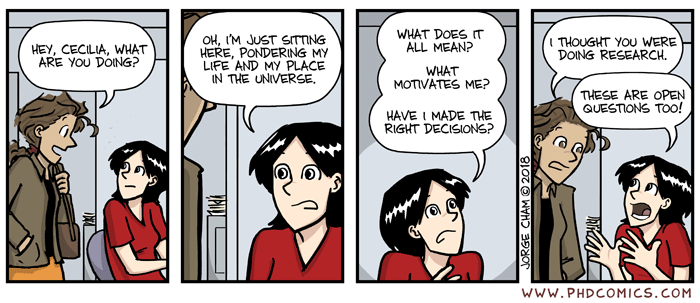Clara Bird, PhD Candidate, OSU Department of Fisheries, Wildlife, and Conservation Sciences, Geospatial Ecology of Marine Megafauna Lab
“What if I’m wrong? What if I make a mistake?” When I began my career after completing my undergraduate degree, these questions echoed constantly in my head as the stakes were raised and my work was taken more seriously. Of course, this anxiety was not new. As a student, my worst fear had been poor performance in class. Post-undergrad, I was facing the possibility of making a mistake that could impact larger research projects and publications.
Gaining greater responsibility and consequences is a fact of life and an intrinsic part of growing up. As I wrap up my third year of graduate school, I’ve been reflecting on how learning to take on this responsibility as a scientist has been a crucial part of my journey thus far.
A scientist’s job is to ask, and try to answer, questions that no one knows the answer to – which is both terrifying and exciting. It feels a bit like realizing that grown-ups don’t have all the answers as a kid. Becoming comfortable with the fact that my work often involves making decisions that no one definitively can say are wrong or right has been one of my biggest challenges of grad school. The important thing to remember, I’ve learned, is that I’m not making wild guesses – I’m being trained to make the best, most informed decisions possible. And, hopefully, with more experience will come greater confidence.
Through grad school I have learned to take on this responsibility both in the field and the lab, although each brings different experiences. In the field, the stakes can feel higher because the decisions we make affect not just the quality of the data, but the safety of the team (which is always the top priority). I felt this most acutely throughout my first summer as a drone pilot. As a pilot, I am responsible for the safety of the team, the drone, and the quality of the data. As a new pilot, I intensely felt this pressure and would come home feeling more exhausted than usual. Now, in my second field season in this role, I’ve become more comfortable and am slowly building confidence in my abilities as I gain more and more experience.
I have also had a similar experience in the lab. Once it’s time to work on the analysis of a project, I choose how to clean, analyze, and interpret the data. As a young scientist, every step of the process involves learning new skills and making decisions that I don’t feel entirely qualified to make. When I started analysis for my first PhD chapter, I felt overwhelmed by deciding how to standardize my data, what kind of analysis to perform, and what indices to calculate. And, since it’s my first chapter, I felt further overwhelmed by the worry that any decision I made would become a later regret in a future part of my PhD.
Recently, the most daunting decision has been how to standardize my data. For my first chapter, I am investigating individual specialization of gray whale foraging behavior. The results of this question are not only important for conservation, but for my subsequent work (check out these previous blogs from January 2021and April 2022 for more on this research question). While there is a wealth of literature to draw analysis inspiration from, most of these studies use discrete prey capture data, while I am working with continuous behavior data. So, to make my data points comparable to one another, I need to standardize the behavior observation time of each drone flight to account for the potential bias introduced by recording one individual for more time than another. After experiencing an internal roller coaster of having an idea, thinking it through, deciding it was terrible and restarting the cycle, I was reminded that turning to lab mates and collaborators is the best way to work through a problem.

So, I had as many conversations as I could with my advisor, committee members, and peers. My thinking clarified with every conversation, and I gained confidence in the justification behind my decision. I cannot fully express the comfort that comes from hearing a trusted advisor say, “that makes ecological sense to me”. These conversations have also helped me remember that I am not alone in my worry and that I am not failing because I have these doubts. While I may never be 100% convinced that I’ve made the right decision, I feel much better knowing that I’ve talked it through with the brilliant group of scientists around me. And as I enter an analysis-intensive phase of my PhD, I am extremely grateful to have this community around to challenge, advise, and support me.
Did you enjoy this blog? Want to learn more about marine life, research, and conservation? Subscribe to our blog and get a weekly alert when we make a new post! Just add your name into the subscribe box below!
